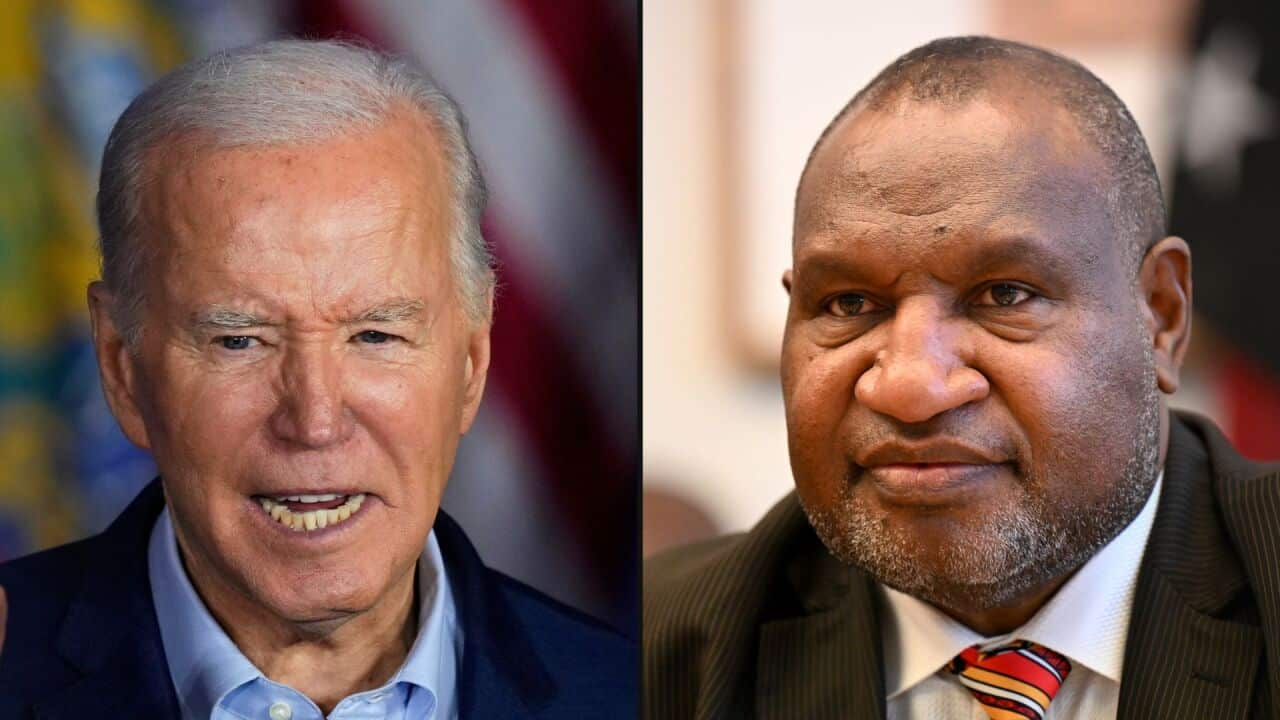Key Points
- Comments by Joe Biden last week appeared to imply that his uncle was eaten by cannibals in Papua New Guinea.
- Biden’s uncle was a pilot in World War Two whose body was never found after crashing near Papua New Guinea.
- Papua New Guinea’s leader James Marape dismissed the comments as a “slip of the tongue” in a “blurry moment”.
Papua New Guinea’s leader has dismissed US President Joe Biden’s unlikely suggestion that his serviceman uncle was eaten by cannibals, saying his nation does not deserve such labels.
Biden said last week that his uncle Ambrose Finnegan was shot down over the Pacific nation during World War Two, suggesting his body was never found because “there were a lot of cannibals” in the area.
US defence records show Finnegan’s courier flight was “forced to ditch in the ocean” off the island’s coast “for unknown reasons”.
A statement released by Papua New Guinea Prime Minister James Marape’s office on Sunday said Biden had “appeared to imply his uncle was eaten by cannibals after his plane was shot down over PNG during World War Two”.
While dismissing such comments as a “slip of the tongue”, Marapethat remain littered across the Pacific.
“President Biden’s remarks may have been a slip of the tongue; however, my country does not deserve to be labelled as such,” Marape said in the statement.
“I urge President Biden to get the White House to look into cleaning up these remains of World War Two so the truth about missing servicemen like Ambrose Finnegan can be put to rest.”
In an interview following Biden’s contentious remarks, Marape clarified that Biden’s comments had not significantly damaged Papua New Guinea’s diplomatic relations with the US, noting that there were “deeper values in our relationship than one statement, one word, one punchline”.
“Sometimes you have loose moments,” Marape said, adding that the two nations’ relationship was stronger than “one blurry moment”.
“I’ve met him on four occasions, until today, and on every occasion he’s always had warm regards for Papua New Guinea,” Marape said.
“Never in those moments (has) he spoke of PNG as cannibals,” he added.
An undated picture of the wreckage of a World War Two Japanese ‘Betty’ Bomber plane in Papua New Guinea. Credit: Universal Images Group via Getty
Papua New Guinea has for decades tried to shed outdated tropes that paint it as a wild nation full of savagery and cannibalism.
The lasting impacts of World War Two also remain sensitive in Pacific Island nations like Papua New Guinea, which historians say was crucial to the United States’ drive across the Pacific to liberate the Philippines.
The country remains littered with wartime human remains, plane wrecks, shipwrecks and tunnels, as well as leftover bombs that were still killing people, Marape said, adding that his nation was “needlessly dragged into a conflict that was not their doing”.
The US government’s travel advisory for Papua New Guinea cites unexploded ordnance as one of the main dangers in remote areas.
In a single bomb disposal expedition on the island of Bougainville in 2014, troops from Australia and the United States destroyed 16 tonnes of wartime munitions.

